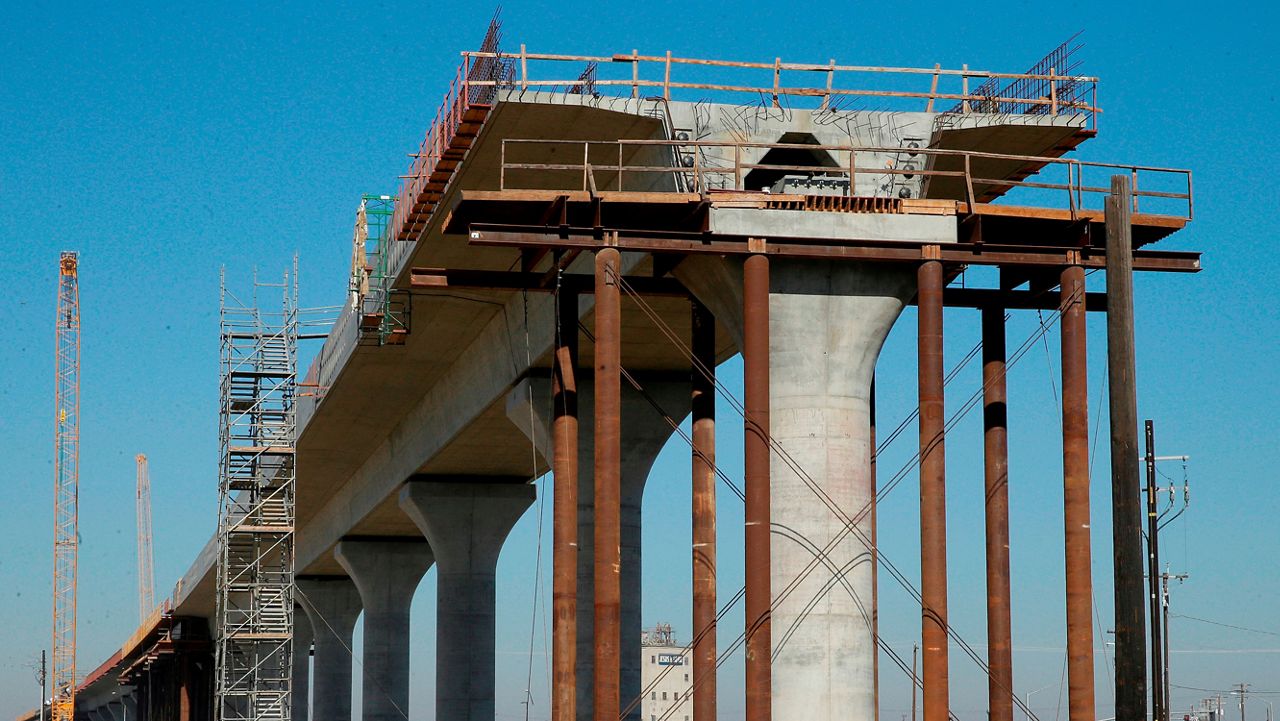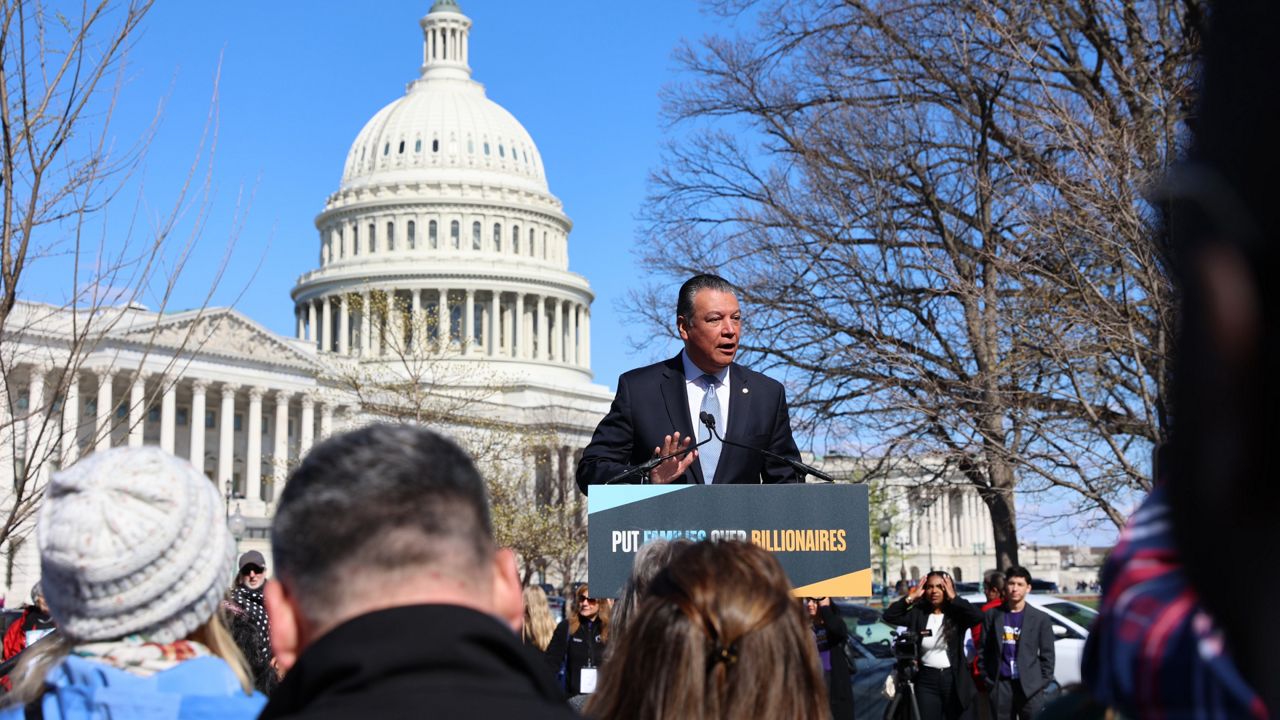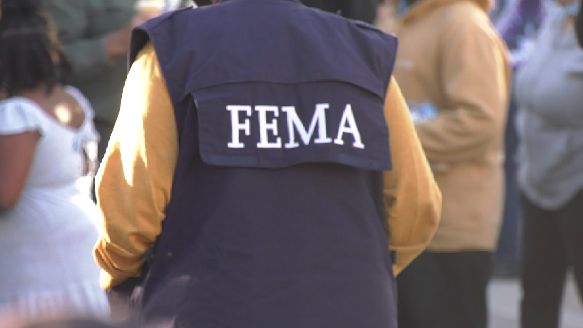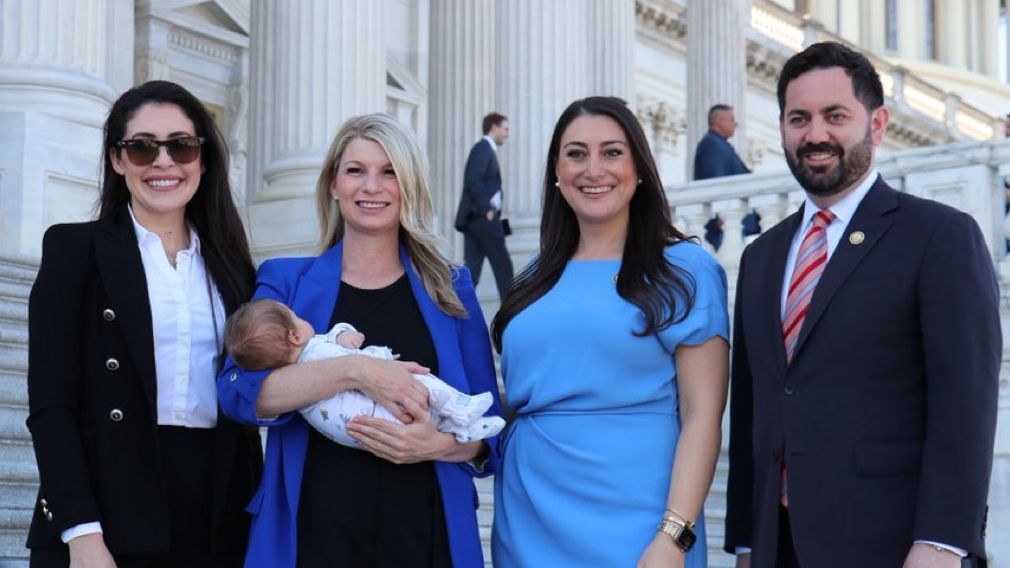Congress seems to constantly be fighting about money; whether it’s spending cuts, calls for foreign aid, or last-minute negotiations to pass the budget.
And while funding fights can get messy, the appropriations committee is a desirable position for lawmakers on Capitol Hill. After serving his entire career as a member of the committee, Rep. David Valadao, R-Calif. is now getting a promotion: chairman of the House Appropriations Legislative Branch Subcommittee.
“I’m really excited about it. It’s something that you kind of always strive for and you never really know when it’s finally going to happen. And so I’m excited to finally get to that point where I’m finally a chair of a subcommittee,” said Valadao Wednesday in an interview with Spectrum News.
While the appointment was made less than a week ago by new Appropriations Chairman Tom Cole, R-Okla., Valadao has hit the ground running, chairing hearings for funding requests for the Library of Congress and the Architect of the Capitol and for the House, all of which are within the purview of his subcommittee.
‘It is a small part of the overall budget, when we talk about the appropriations process, but it is the most important part for us as members of Congress to be able to do our job and serve our constituents — everything from making sure that we’re able to allow people in the building keep people safe when they’re in the building, allow our offices to function the way we do our outreach to our constituents,” explained Valadao. “It is an important one, but it’s not one that most people really think about when it’s one that affects their everyday lives.”
Valadao’s appointment makes him a so-called “cardinal” of the appropriations committee. Each “cardinal,” or subcommittee chair controls portions of the budget and are key in bringing together the twelve appropriations bills to complete the fiscal year budget.
“You have some specialized policy committees, and then you have what are called the power committees. And this is what’s considered a power committee,” explained Todd Belt, a professor and the director of the Political Management Program at the George Washington University. “The reason why it’s so powerful is because when you have control of money, other people come to you for favors, and you can do favors for other people, which means that you can generate a lot of goodwill among the Republican conference or the Democratic caucus, which you can then translate into moving up through leadership.”
For Valadao, who has been a “frontline Republican” — one whose district is considered vulnerable to Democratic opposition — in the last several cycles, Belt says this could provide the Central Valley congressman some cover.
“One of the things that we see members of Congress say is that keep me in Congress because I can do more for you than a newcomer can do. And this really gives them that argument,” Belt reasoned.
With the 2024 fiscal year budget being finalized six months late, lawmakers will have their work cut out for them to get the new budget done in the less than six months until the start of the 2025 fiscal year, on Oct. 1.
“We’re going to have real big tension because we have a lot of Republicans who want to make some real significant cuts to the budget. But we’ve also got — everybody’s got their own little private institution that they want to protect, they’ve got their pet projects,” predicted Belt. “So there’s going to be a lot of tension between who gets their pet projects, who doesn’t, and how much actually gets cut in this next budget cycle.”
Valadao, when asked whether this week’s ongoing foreign aid battle was indicative of the budget battle that lies ahead, acknowledged the challenges they are facing.
“We know that there’s going to be some problems, we know there’s going to be some hiccups. Every funding fight we’ve ever had has had a problem. And I think this one is going to continue to show that we’re going to struggle to get the votes, and there’s a few of our members on the Republican side that will never get to a yes,” admitted Valadao.
The GOP’s slim majority in the House has forced Speaker Mike Johnson to rely on Democrats to pass most bills, complicating his relationship with his far-right flank: Reps. Marjorie Taylor Greene, R-Ga. and Thomas Massie, R-Ky. have threatened to oust Johnson — just as Rep. Matt Gaetz, R-Fla., did with former Speaker Kevin McCarthy — derogatorily calling him a “Democratic speaker.”
Valadao doesn’t subscribe to that view.
“We’ve always had to rely on people across the aisle and a lot of major packages. This isn’t a new thing. The issue that we’re dealing with now is it’s such a slim majority that even passing rules is complicated for us, which has never been a thing. So it makes it a little more complicated because it’s in the forces to do things like suspending the rules and getting two-thirds of all members to vote for things,” Valadao explained. “Those that are against everything are basically locking themselves out of the conversation and forcing us to deal with more and more [with Democrats] on the other side of the aisle. And they’re going to be more unhappy with the final product.”









